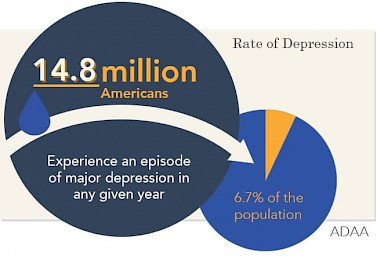- Stories from the Road – An Act of Kindness from Behind the Wheel
- The Best Places to Rest in America
- Celebrating National Truck Driver Appreciation Week 2024
- Stories from the Road: Inside the Driver's Mind
- Trucking Pro Advice- How to Excel for the Long Haul
- Spotlight on Employee Appreciation at Maverick
- Stories from the Road- Meet Maverick Driver, Kenny Neely
- Fuel up and GO: Healthy and QUICK Recipe & Activity Ideas for the Professional Truck Driver
- The Juggling Act: Stories from the Road- How to successfully balance a professional truck driving career and your family.
- Maverick: At the Forefront of Technology
- Stories from the Road: A Journey
- A Closer Look at How Maverick Gives Back
- Exploring the Advanced Interior of Maverick’s State-of-the-Art Trucks
- 2023 Maverick Driver Appreciation Week
- 2023 National Truck Driver Appreciation Week Food Schedule
- Get to Know Maverick
- Flatbed Trucking Tips and Tricks
- Tips for Staying Hydrated and Safe in the Summer Heat
- Summer Road Trip Essentials
- 2023 Maverick Employee Appreciation Week Food Schedule
- How to Succeed as a Professional Driver
- MAVERICK TRANSPORTATION CELEBRATES FIVE VETERAN TRUCKS TO BEGIN 2023
- 2022 Maverick Employee Appreciation Week Food Schedule
- 2020 Driver of the Year Recap
- 2020 Special Olympic Truck Convoy
- 2019 Driver of the Year Recap
- Maverick Transportation Celebrates 40 Years in Business
- 2019 Driver Appreciation Week Schedule
- 2019 ARKANSAS TRUCKING CHAMPIONSHIP
- 2019 Employee Appreciation Week Schedule
- 2018 Driver of the Year Event Recap
- 2018 Driver Appreciation Week Schedule
- 2017 Driver of the Year Event Recap
- MAVERICK TRANSPORTATION ANNOUNCES LARGE PAY INCREASE
- Maverick Driver Ron Kneeland III Named 2017 Hero of the Highway
- Aces & Freights - 2017 Q3
- Aces & Freights - 2017 Q2
- New Dedicated Driver of the Quarter/Year Program
- DOCUMENTARY FILM “BE PREPARED TO STOP” SHOWS IMPACT OF FAILING U.S. INFRASTRUCTURE ON LIVES OF AMERICANS AND ECONOMY
- Statement on Automated Vehicle Technologies
- Aces & Freights
- 2016 Driver of the Year Event Recap
- Maverick Announces 401k Match for All Maverick Employees
- Be Prepared to Stop
- Advice for the Rookie Maverick Driver – Pt. II
- Advice for the Rookie Maverick Driver – Pt. I
- 2015 Driver of the Year Event Recap
- Delivering Excellence, Driven by People: Meet Lonnie Johnson, Maverick's 2024 Trainer of the Year
Posts
Aces & Freights
Tuesday, February 14, 2017

Welcome to our latest edition of Aces & Freights – our newsletter, written by Operations Analyst and former driver Ken Moore, regarding the trucking lifestyle.
Questions or comments? We’d love to hear from you. Please don’t hesitate to contact Ken at kmoore@maverickusa.com. We hope you enjoy the content and we look forward to your comments, suggestions, and any stories you may have to share, too!
Mentally Healthy Life Edition
In order to drive a truck as safely as we can, we need to be in the right mindset. Namely, we need to be focused. This can sometimes be a monumental task! Truck drivers need to make, on average, 160 decisions per minute. Does that number decrease because of issues at home? Does it decrease if you’ve recently lost someone? How about if you didn’t sleep well? No, of course it doesn’t. Now, does your ability to process 160 decisions per minute decrease because of those things? Absolutely. In this edition of Aces & Freights, I’m going to delve into the too often stigmatized subject of our mental health and hopefully provide some resources that can help to improve our ability to focus on the road.
Physical Aspects of Mental Health
The best thing we can do to keep ourselves in good mental health is to take care of ourselves physically. Making the right decisions in what to eat, eating often, and getting physical exercise aren’t just good things to keep our hearts healthy. These same things are paramount to keeping the mind healthy enough to deal with the demanding tasks we force it to do day after day on the road.
Serotonin is a hormone that regulates almost everything important to keeping a focused mind. Sleep, mood, and appetite are all heavily influenced by serotonin and all three of those affect your driving either positively or negatively. What most people don’t realize is that 95% of our serotonin production comes from our stomachs and that our gastrointestinal tracts are lined with neurons that tell the brain what’s coming in. Simply put, if the food is something the body likes, the brain receives those signals and we’re happier because the brain rewards us with a proper amount of serotonin. If the food that we’re digesting is full of refined sugars, we can be put into an awful mood because the brain receives the signals that tell it we’re not getting what we need and it decides to alter our serotonin levels.
This can lead to a downward spiral for anyone, but especially for drivers. We tend to have really long days of work, and if our serotonin is off, we can have trouble sleeping, which will make us even more tired at the end of the day. If we’re even more tired, we’re a lot less likely to prepare our own foods and a lot more likely to eat something fast and bad for us. What does this lead to? More nights of bad sleep (which is hard enough to get when a lot of drivers first start off due to the facts that they’re in a strange  environment with sounds they’re not used to and there’s a lot of stress getting used to being on their own) and more days of bad focus…This is absolutely a safety concern, but it can also affect how much money you earn. When you lose focus, you’re more likely to make a mistake while driving, which hopefully is a small mistake, but it still may cost you points on your PFP. If I average 2100 miles per week and I have a .02/mile bonus, that’s potentially jeopardizing about $550 per business quarter because I didn’t eat better. That’s junk! Also, if I’m in a bad mood because I didn’t eat well, all the little issues I encounter on the road suddenly seem like they are big issues, and not to mention that the bad serotonin levels can make me more impulsive making me more likely to quit, which could cost me a lot of money.
environment with sounds they’re not used to and there’s a lot of stress getting used to being on their own) and more days of bad focus…This is absolutely a safety concern, but it can also affect how much money you earn. When you lose focus, you’re more likely to make a mistake while driving, which hopefully is a small mistake, but it still may cost you points on your PFP. If I average 2100 miles per week and I have a .02/mile bonus, that’s potentially jeopardizing about $550 per business quarter because I didn’t eat better. That’s junk! Also, if I’m in a bad mood because I didn’t eat well, all the little issues I encounter on the road suddenly seem like they are big issues, and not to mention that the bad serotonin levels can make me more impulsive making me more likely to quit, which could cost me a lot of money.
The “downward spiral” I described above has happened to all of us at some point, but being aware of why it happens can help us prevent it from happening again. I’ve never been one to tell anyone how to eat, but we all know that natural foods tend to make us feel better. Try replacing one or two refined foods that you regularly eat with something a little better; maybe drop potato chips or another processed snack for sunflower seeds. Just making small changes here and there will increase the likelihood of you keeping that change. Give it a month and see how much of a difference that makes in how you feel…and how you drive!
Depression OTR
Nationally, about 6.7% of the total U.S. population suffer from depression. The number for truck drivers is in the area of 200-300% higher than that. No doubt that reduced personal contact and time with support groups such as friends and family as well as improper nutrition and exercise (as was stated in the previous article) significantly contribute to this increase. Unfortunately, depression is a bit of a touchy topic because of the stigma we associate with it. There’s a thought that if I am depressed, there’s something wrong with me and I’d just sound weak if I talked with someone about it. This is especially true in the trucking industry as almost every image the industry pushes of a truck driver is of a “tough” looking man. Large men with arms crossed and stern, stoic unshaven faces cover almost every advertisement for trucking companies. This unrealistic image reinforces the fact that truck drivers are regular, everyday people who deal with most of their issues alone over the road.

Now, the national numbers are one thing, but how much are we affected by it here at Maverick? You might think that this number is lower since we have good home time and it likely may be, but, in the Best Fleets to Drive For survey that Maverick drivers completed at the end of 2015, one of the top 3 wishes that drivers would like to see Maverick adopt is to have counseling services available to them. Even though our numbers may not be as high as the national numbers, clearly they are significant enough that we need to pay attention to this issue. Based on the statistics above and accounting for better home time for a conservative estimate, it’s still highly possible that somewhere between 150 and 250 Maverick drivers suffer from some level of depression.
So, let’s get into what exactly depression is. First and foremost, depression is a medical condition. Other examples of medical conditions are: high blood pressure, arthritis, allergies, hemophilia, etc. All of these things, including depression, vary in how severe they are and all of them are treated by specialists. Symptoms of this medical condition include: sadness or a depressed mood almost every day, the loss of enjoyment of things you used to like to do, major changes in weight in a short period of time, too much or too little sleep almost every day, fatigue almost every day, feeling hopeless or worthless or guilty almost every day, problems with concentrating or making decisions, and thoughts of hurting oneself. Sometimes this is caused by changes in serotonin levels (as described above) and sometimes it’s caused by unusually hard circumstances that we don’t know how to cope with.
Last August, my 21 year old son, Dugan, passed after a hard-fought 10 month war with brain cancer. It completely destroyed me. I suffered from almost every symptom listed above except for having thoughts of hurting myself. I barely slept…Memories had begun to surface where I could have been a better father and they haunted me endlessly…I could barely concentrate on my work…My day to day memory, which is normally quite good, lost its hold and I also had problems remembering anything from the previous year…My grief, which had started before Dugan died, developed into a social anxiety disorder and a slight paranoia…I was angrier and more depressed than I could handle on my own. It wasn’t fair to my family who was suffering as well, so I had to do something about it…
During my time with Maverick, I’ve pushed our Employee Assistance Program (EAP) multiple times. I was told that it is a great program but that it is also under-used. At first, I thought that this is due to the program possibly not being advertised well enough or often enough after orientation. Now, however, I realize that the problem goes a bit further. Knowing that I was having trouble with depression…knowing that I couldn’t cope without help…believing fully that counseling is a good thing, that it helps people, and that everyone should see a counselor at some point in his life…I picked up the phone, but couldn’t dial the number. I couldn’t admit I was lost or that I couldn’t get myself back on track. It ended up taking me two days just to make the call.
What I need to tell you is that call was the first step in building my life back up. The person handling calls for the EAP was very understanding. He looked up and found counselors in my area who are in network and accept the EAP payments. I was then given codes for myself and each member of my family to give to our grief counselor so that we could each have three free sessions with her. After that, it’s billed through insurance and it’s treated the same way as any other medical visit, going toward the deductible. The process is easy, quick, and doesn’t add to your stress.
 Admittedly, I’m still reeling from losing Dugan. Some days are better than others, some hours are better than others. I’ve teared up more times than I can count just writing this article, but I’m actually able to write it because I got the help I needed to cope. One of the three top things Maverick drivers wanted was access to counseling. Well, Maverick has that. If you need the help, like I did, please make the call.
Admittedly, I’m still reeling from losing Dugan. Some days are better than others, some hours are better than others. I’ve teared up more times than I can count just writing this article, but I’m actually able to write it because I got the help I needed to cope. One of the three top things Maverick drivers wanted was access to counseling. Well, Maverick has that. If you need the help, like I did, please make the call.
-Ken Moore
The EAP brochure and phone number is in MMS should you or your families ever find need of counseling, legal advice, and more. All inquiries, conversations, and medical information shared with the EAP or your specialists are confidential and no information is shared with Maverick or anyone else. If you need to set up home time to meet your appointment, you are under no obligation to tell us if your appointment is with a counselor.
The Wind Down
Driving is simultaneously a career of unimaginable exploration and freedom. It’s truly an amazing feeling to get paid to explore the country. To see the Rockies and Appalachians, the Atlantic and Pacific oceans and the Gulf of Mexico, to taste the differences in pizza from state to state, to experience different cultures on a daily basis…This is an education that few people get to experience. At the same time, unfortunately, there are lots of experiences that drivers go through on a daily basis that just cause stress: bad drivers who cut you off, steep downhills with lots of curves, a receiver who happens to be in a bad mood, etc. All these things and more cause high and low levels of stress every day, and if you haven’t found a way to release that stress, it carries over to the next day and makes all of the stress for that day worse. The best thing drivers can do for themselves is to find something to do to wind down.

For me, I had an arsenal of things I could do to wind down. My guitar has been to every state that I’ve been to and would come out at the end of the day and sometimes for breaks during the day. I would also hike, collect minerals and fossils that I’d find all over the place, and keep a blog. Whatever it is, it has to be something that you enjoy doing and that can be done anywhere. Some drivers prefer fishing and some prefer golfing. I’ve heard of both being done all over the place. What’s cool is that there are more and more “hobby” groups forming online, many of which are on Facebook, and are basically forming clubs. So, if disc golfing happens to be your thing, you can go onto Facebook, find the disc golfing groups Disc Golfing Truckers and Disc Golfing Truckers/travelers, both are Maverick driver Ken Donathan’s groups, join one or both, and then not only will you have information on where you can go to do it, but you might even be able to set up times with other people in the club to play together. This would be a great option for a 34 hour break. If you don’t see a group with your interests, form one and post it to the Maverick Family Facebook page and to your wall. Maybe some other Maverick Drivers and some of your friends will join, then their friends might join and so on. The larger the group is, the better the chances of finding what you like to do all over the country.
Some other interests I’ve seen Maverick drivers have taken to are photography and photo editing. Going to different parts of the U.S. and/or Canada all the time, there’s an opportunity to catch lots of different landscapes with different lighting. (If you pay attention, you’ll notice that cloud formations are different depending on the region you’re in as well.) Then, with apps like Snapseed, you can alter your pics to however your artistic side likes.
Here are a couple of good shots by Erick Risher:


Regardless of what you end up doing at the end of the day, make sure it’s something that can help you cut the stresses of everyday life on the road. Driving is an amazing and unique experience if you let yourself enjoy it.
Trainer Spotlight: David Muggeridge
►With Maverick since August 2013
►Trainer for over Two Years
►Drives in MSN Division (Glass OTR)
►What does he like best about Training?
- David like the satisfaction of helping and it feels good to be shaping the future of Maverick drivers.
►What’s his approach in helping a student who is having trouble?
- Take a step back, ask a lot of questions to help you understand how best to help the student. Then reevaluate how they’re doing and what will help them.
►How does he get to know his students?
- As soon as he gets the phone number, he calls them that night and spends about an hour on the phone getting to know them and asking questions of what they feel their strengths and weakness are.
►Why does he drive?
- He knew he didn’t like office work. He worked in a life insurance office for four years and needed a change. He then got into transportation in 1994.
►What hobbies does he enjoy?
- Singing, billiards, and painting. He used to be an Elvis impersonator, but now he mostly sings gospel.
►Does he do any of them on the road?
- He sings going down the highway unless he has a student in the truck, and there are a few truck stops out there with pool tables, so he plays when he can.
David was Maverick’s Q3 Trainer of the Quarter in 2016.
Suggested Apps
 Snapseed is a great, easy to use app allowing you to edit all the photos you take with your phone on the road. Not only does it let you correct for photos that came out too dark, but there are a slew of filters you can choose from to get the right feel for your pics. My favorite aspect is that it allows you to change exposure, warmth, brightness and more on specific parts of your photo instead of only having the option to do this for the entire frame. It’s a free app and it’s completely entertaining. Give it a try!
Snapseed is a great, easy to use app allowing you to edit all the photos you take with your phone on the road. Not only does it let you correct for photos that came out too dark, but there are a slew of filters you can choose from to get the right feel for your pics. My favorite aspect is that it allows you to change exposure, warmth, brightness and more on specific parts of your photo instead of only having the option to do this for the entire frame. It’s a free app and it’s completely entertaining. Give it a try!
 PhotoDirector is a cool alternative to Snapseed that lets you use the filters before you take the picture. There’s also a slide on the screen that controls how much light affects the details of your shot. For example, if a bright window is behind your subject, you can adjust it so that you can either have a silhouette or so that you can see the subject’s details instead. What’s even cooler is that you can use these effects on your inward facing camera, too. PhotoDirector is a free app and definitely a lot of fun.
PhotoDirector is a cool alternative to Snapseed that lets you use the filters before you take the picture. There’s also a slide on the screen that controls how much light affects the details of your shot. For example, if a bright window is behind your subject, you can adjust it so that you can either have a silhouette or so that you can see the subject’s details instead. What’s even cooler is that you can use these effects on your inward facing camera, too. PhotoDirector is a free app and definitely a lot of fun.
Suggested Websites
►Harvard provides some excellent resources for how nutrition affects your brain.
http://www.health.harvard.edu/blog/nutritional-psychiatry-your-brain-on-food-201511168626
►Here is a short video you can watch on what exactly Depression is and how it can affect someone:
Liz Imel – Temp Control, OTR
 When coming into your Dock area always size up the area that you have to work with for your setup, as you are approaching your dock look at the door you are going to back into.
When coming into your Dock area always size up the area that you have to work with for your setup, as you are approaching your dock look at the door you are going to back into.  Check to see what kind of docking system the customer is using because there are many different variations. If it’s a spring-loaded bumper latch make sure the jaw is open before backing into it. Before you back all the way into your dock slide your tandems to the rear of the trailer. That helps reduce movement of the trailer in the unloading process because excessive movement of the trailer can cause the DOT bumper latch to wedge against the bumper and not allow it to release.
Check to see what kind of docking system the customer is using because there are many different variations. If it’s a spring-loaded bumper latch make sure the jaw is open before backing into it. Before you back all the way into your dock slide your tandems to the rear of the trailer. That helps reduce movement of the trailer in the unloading process because excessive movement of the trailer can cause the DOT bumper latch to wedge against the bumper and not allow it to release.  Once you get the green light and an “ok” from the customer to move, but before moving the truck, walk to the back of the trailer to check and see if the jaw has been released from the bumper. You may have to back against the dock to get the jaw to release the bumper. Do not pull out if the bumper has not released. Go inside to have the customer release the lock jaws so you can move. In short, always know what kind of dock you are backing into.
Once you get the green light and an “ok” from the customer to move, but before moving the truck, walk to the back of the trailer to check and see if the jaw has been released from the bumper. You may have to back against the dock to get the jaw to release the bumper. Do not pull out if the bumper has not released. Go inside to have the customer release the lock jaws so you can move. In short, always know what kind of dock you are backing into.
Safety Awards Quarters 3 and 4, 2016
July
Charles Baines- 5 year
David Linscott- 5 year
James Mugisha- 5 year
Eric Blakeman- 5 year
Ken Ankney- Million Mile
Kelly Johnson- Million Mile
Mitch Miller- 15 year
Keith Williams- 2 Million Miles
August
Jeff Woods- 5 year
Timothy Taylor- 5 year
Clarence Rhodes- 5 year
Veon Hughes- Million Mile
Brian Cady- Million Mile
Charles Howlett- Million Mile
Daniel Behanna- 10 year
James Darby- 10 year
Kenneth Dublin- 10 year
Edmond Foster- 10 year
Steven Carlson- 10 year
Michael Grant- 10 year
Gary Lipscomb- 20 years
Vincent Lester- 20 years
September
Cecil Conner- 5 years
Brian Doerr- 5 years
David Bell- Million Mile
Kirl Tartt- 25 years
October
David Bach- 5 year
Edwin Coleman- 5 year
Jeff Callen- 5 year
John Grooters- 5 year
Alvin Campbell- Million Mile
Doug Cutler- Million Mile
DJ Grey- Million Mile
Joe Oliver- 10 year
November
Rodney Boettger- 5 year
Alex Gulley- 5 year
Joe Steeley- 5 year
James Patrick- Million Mile
Jim Jones- 10 year
John Bentley- 15 years
December
Jose Origel- 5 year
Troy Smith- 5 year
Steven Jarrell- 5 year
Michael Perkins- 5 year
Scott Nester- Million Mile
Ron Nunley- Million Mile
Jay Rambo- Million Mile
Dean Payne- 15 years
